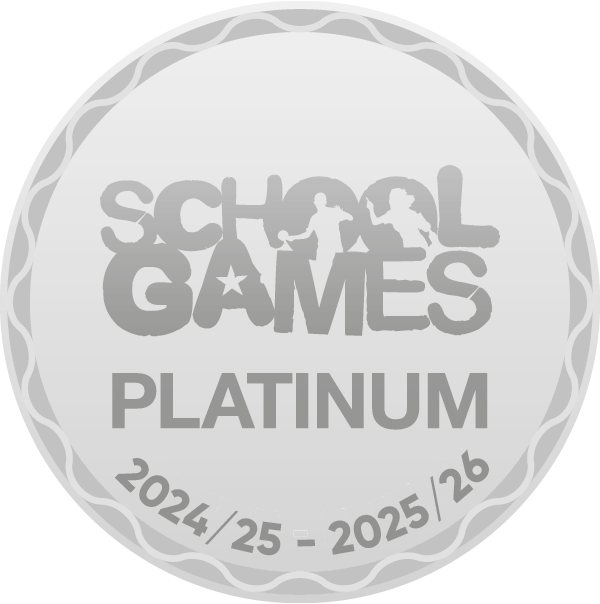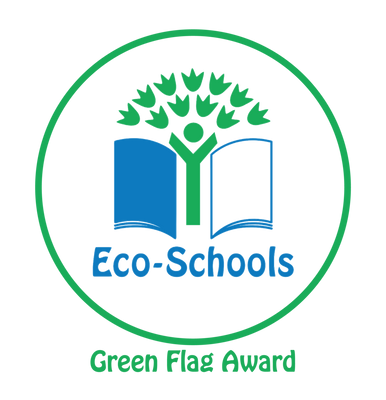Physical Education (PE)

We are delighted to announce that Bidbury Junior School has achieved the School Games Platinum Mark Award. The Platinum Award is the highest level that schools can achieve. It is available for schools that have consistently achieved the gold standard and is valid for two years.
The School Games Mark is a Government-led award scheme, facilitated by the Youth Sport Trust, to reward schools for their commitment to the development of competition across their school and into the community, and we are delighted to have been recognised once again for our success. We are extremely proud of our pupils for their dedication to all aspects of school sport and particularly of our Sports Leaders who have done a brilliant job this year.
As part of our application, we were asked to fulfil criteria in the areas of participation, competition, workforce and clubs, and we are pleased that the hard work of everyone at our school has been rewarded this year. A special thanks to our PE Team - Mr Marsh, Miss Bishop and Mr Hooper - for all their hard work; to Mr McIntyre for driving the minibus; and to the office team for their help in organising the events.
Physical Education at Bidbury Junior School
At Bidbury we recognise the importance PE plays in the curriculum and are committed to providing all children with opportunities to engage fully in Physical Education. The aim of our PE programme is to develop children's basic physical competencies, build confidence in their ability and build the foundations for a lifelong love of sport, physical activity and a healthy lifestyle. Through good physical education, whole school values and a whole child approach, we aim to nurture confident, resilient children who will strive for their personal best. We want to aid our children in obtaining the values and skills to celebrate and respect the success of others, as well as modestly celebrating their own successes. We aim to ensure that our delivery of physical education allows all children to have the skills and mindset to leave infant school with the capabilities to be successful in their sporting challenges and active lifestyles at junior school and beyond. We strive to educate our children to develop a greater understanding on how to live healthy lifestyles and make healthy choices. We are dedicated to ensuring healthy minds, as well as bodies and will continue to support our children's wellbeing.
National curriculum for physical education
Aims
The national curriculum for physical education aims to ensure that by the end of key stage 2 all pupils:
- develop competence to excel in a broad range of physical activities
- are physically active for sustained periods of time
- engage in competitive sports and activities
- lead healthy, active lives.
Subject content for physical education in key stage 2
Pupils should continue to apply and develop a broader range of skills, learning how to use them in different ways and to link them to make actions and sequences of movement. They should enjoy communicating, collaborating and competing with each other. They should develop an understanding of how to improve in different physical activities and sports and learn how to evaluate and recognise their own success.
Pupils should be taught to:
- use running, jumping, throwing and catching in isolation and in combination
- play competitive games, modified where appropriate [for example, badminton, basketball, cricket, football, hockey, netball, rounders and tennis], and apply basic principles suitable for attacking and defending
- develop flexibility, strength, technique, control and balance [for example, through athletics and gymnastics]
- perform dances using a range of movement patterns
- take part in outdoor and adventurous activity challenges both individually and within a team
- compare their performances with previous ones and demonstrate improvement to achieve their personal best.
Swimming and water safety
All schools must provide swimming instruction either in key stage 1 or key stage 2. In particular, pupils should be taught to:
- swim competently, confidently and proficiently over a distance of at least 25 metres
- use a range of strokes effectively [for example, front crawl, backstroke and breaststroke]
- perform safe self-rescue in different water-based situations.
Attainment targets
By the end of each key stage, pupils are expected to know, apply and understand the matters, skills and processes specified in the relevant programme of study.
Teaching and learning
Our PE lessons are planned using resources from the Get Set 4 PE, which align with our core values, our whole child approach to PE and the objectives laid out in the National Curriculum.
Get Set 4 PE is planned so that progression is built into the scheme which ensures our children are increasingly challenged as they move up through the school. Our PE lessons encourage children to compete against themselves and others whilst being challenged to improve their physical, social, emotional and thinking skills. These skills are embedded in the heart of our planning. Alongside this, Fundamental Movement Skills (FMS) underpin all of our units. We make sure that the same set of progressive knowledge for these skills is woven throughout our whole curriculum.
The curriculum planning in PE is carried out in three phases (long-term, medium-term and short term). The long-term plan maps out the PE activities covered in each term during the key stage. The PE subject leader works this out in conjunction with teaching colleagues in each year group. Together we create a broad and balanced curriculum that is exciting for our children to learn through. Our medium-term plans give details of each unit of work for each term. These schemes of work provide an overview of the unit, links to other areas of the National Curriculum and assessment criteria for that unit. The short-term lesson plans provide opportunities for children of all abilities to develop their skills, knowledge and understanding in each activity area.
Curriculum progression
"It is useful to look at knowledge in PE through the lens of declarative (knowing what) and procedural (knowing how) knowledge....Declarative knowledge in PE is the factual knowledge concerning movement, rules, tactics, strategies, health and participation...Procedural knowledge can be viewed as the know-how to apply declarative facts."
Research Review Series: PE, Ofsted, 2022
Through multiple units of the Get Set 4 PE scheme, we create opportunities for children to transfer and build on their declarative knowledge, procedural knowledge and physical skills of the National Curriculum. By applying learning in different environments, children are using this embedded knowledge not just responding with recall.
To support our pupils to know more and do more, we have carefully considered how we have sequenced each of the units. Some key points to note around this are:
- We teach ball skills, fitness, fundamentals and sending and receiving units at the start of the year to give pupils opportunities to develop the skills in isolation, build knowledge and develop relative fluency.
- This enables pupils to apply these skills in more complex games activities (such as target, net and wall, striking and fielding and invasion) where there is increased pressure, rules and decision making.
- We have placed our games units together where there are transferable opportunities for pupils to develop their understanding of the principles of attacking and defending.
- Of all our games units, target games are the easiest. We teach these first as they are a great introduction to applying simple tactics without the requirement of advanced skills.
- We have placed gymnastics before dance, as in gymnastics pupils are taught movement skills and actions which they could then choose to use in a more creative environment where they work independently to select actions.
Adapting our curriculum
As part of the Get Set 4 PE scheme, we use the STEP principles to adapt our teaching in PE. This suggests the following strategies:
| S | Space |
|
|||||
| T | Task |
|
|||||
| E | Equipment |
|
|||||
| P | People |
|
|||||
Enriching our curriculum
At Bidbury, we offer a range of sports-related extra-curricular activities to all pupils. These aim to provide opportunities to enable pupils to participate beyond their PE lessons, giving them more time to practise, extend and refine their knowledge and celebrate a variety of different activities. These include activites that are not in the school PE curriculum such as archery, zumba and fencing. Our extra-curricular provision is not restricted to clubs or activities before or after school hours. It also includes opportunities for pupils to participate in physical activity and sport during breaks and lunchtimes.
Assessment
Our sports coaches assess the children’s work in PE, both by making informal judgements, as they observe them during lessons, and through assessing against the specific objectives set out in the National Curriculum and recorded using the Get Set 4 PE assessment resources. We have clear expectations of what the pupils will know, understand and be able to do at the end of each unit and key stage. Sports coaches and teachers are supported with resources to know how to prepare children for their next phase of education. These resources include the Get Set 4 PE progression of skills document, progression ladders and knowledge organisers.




